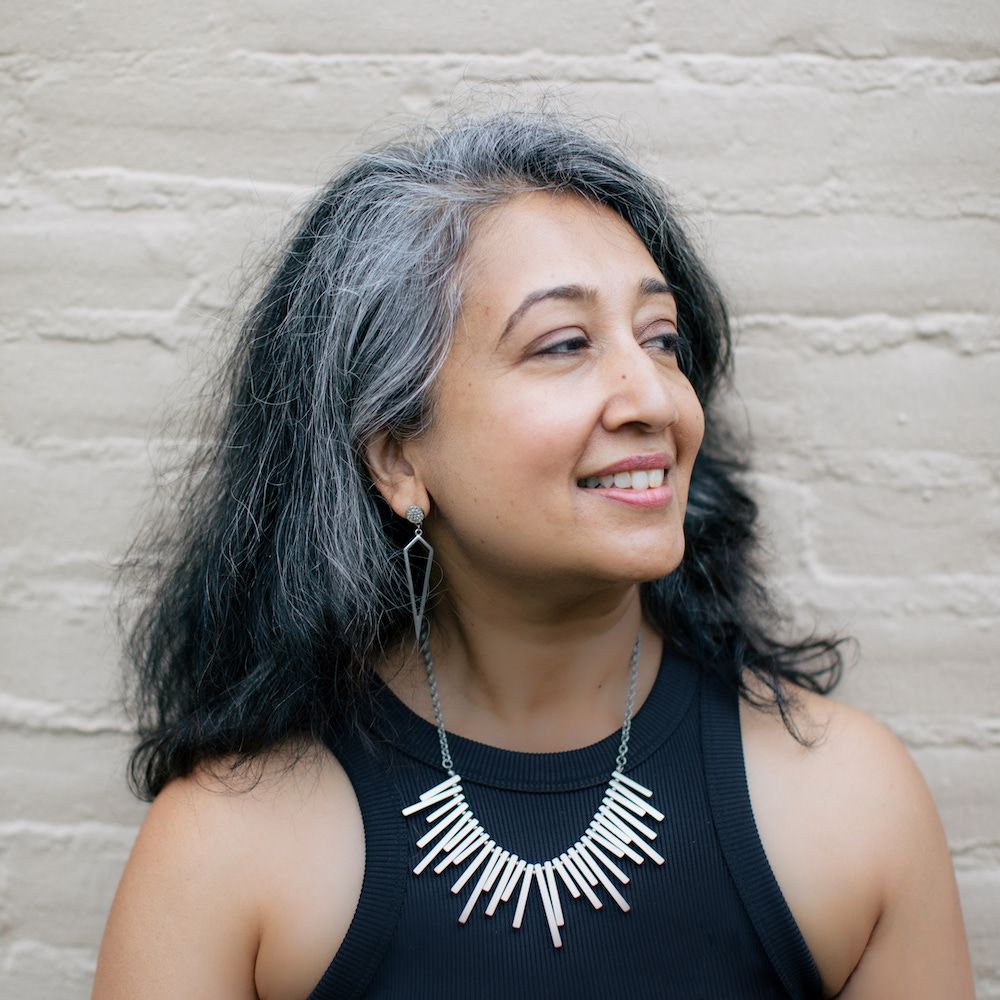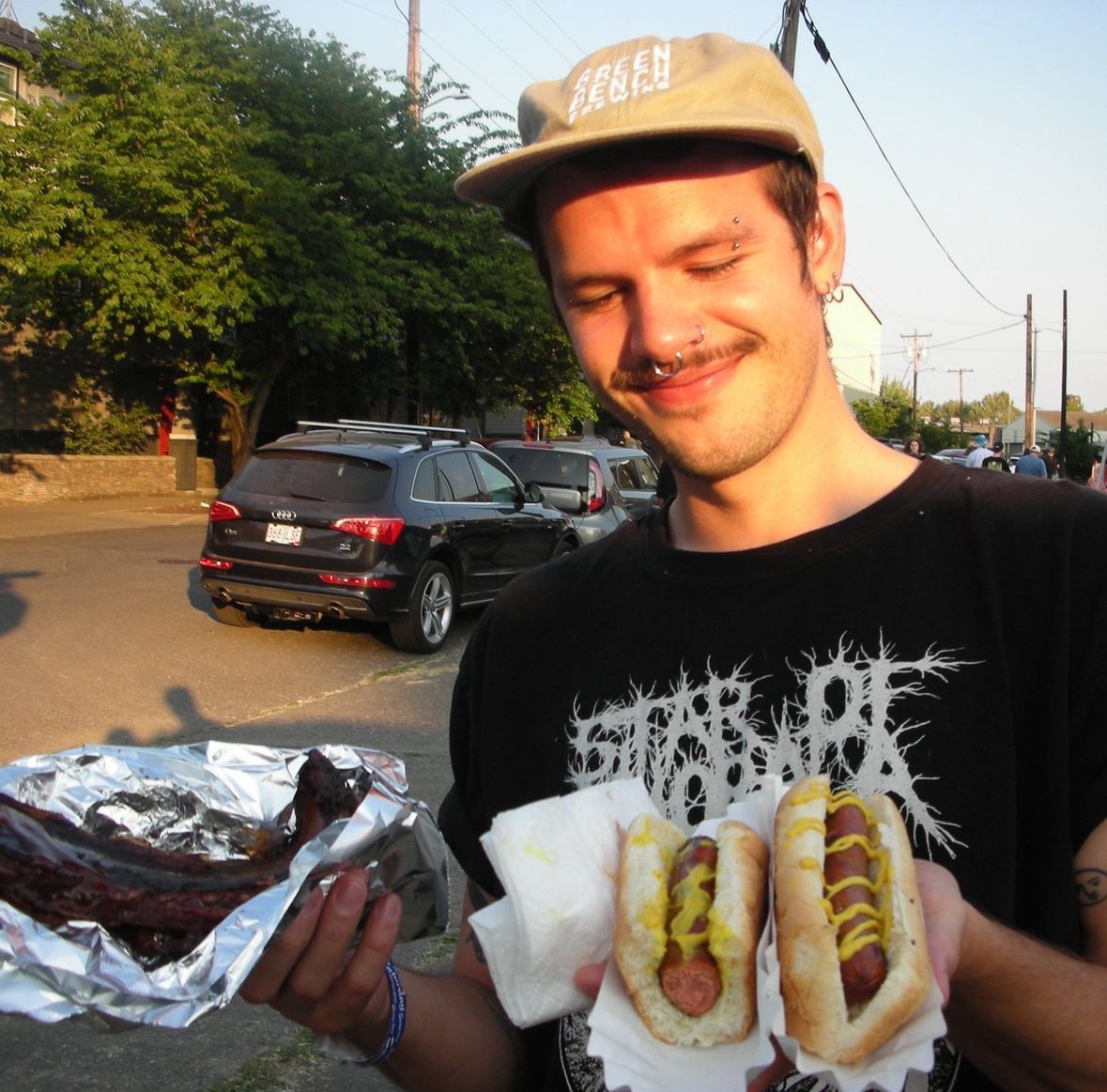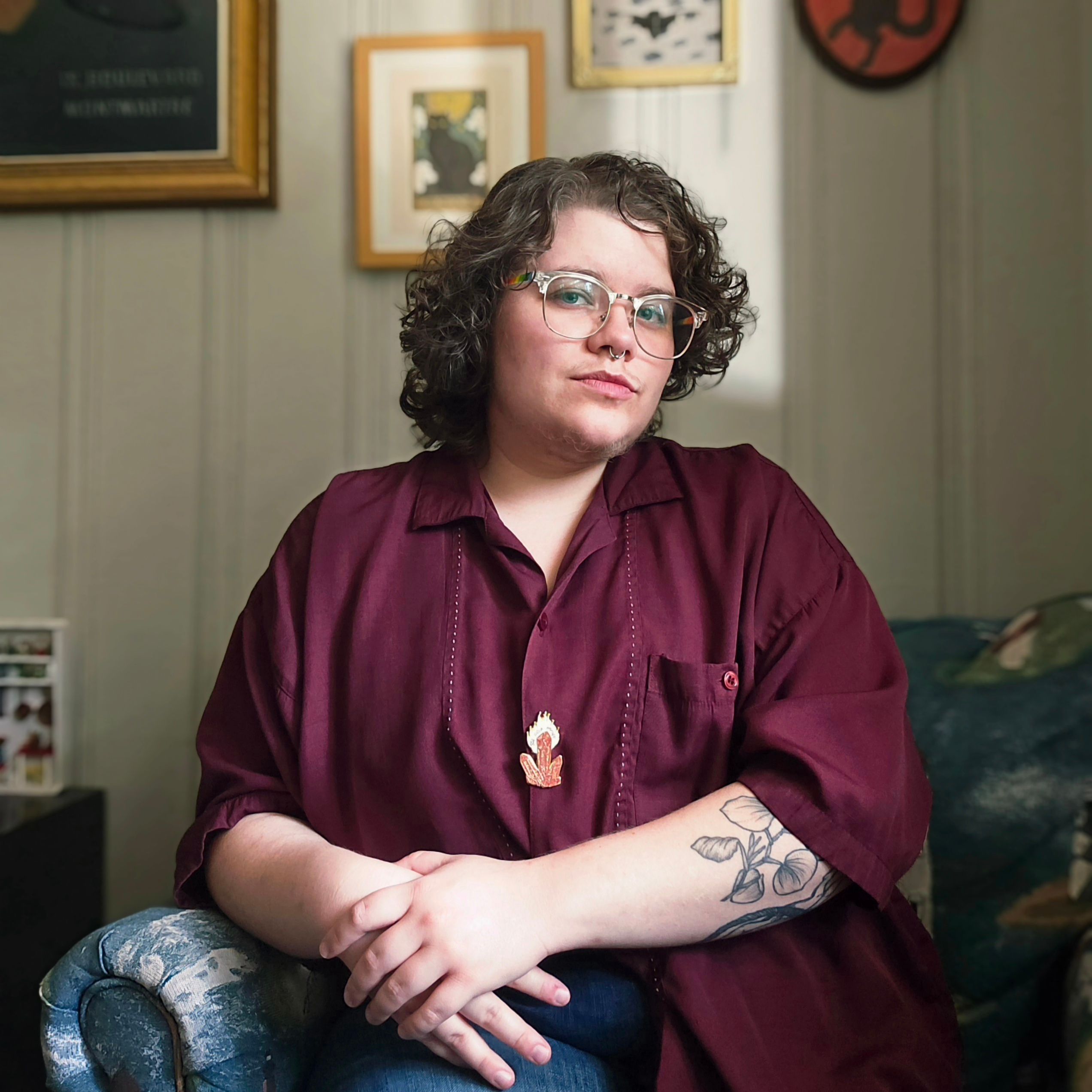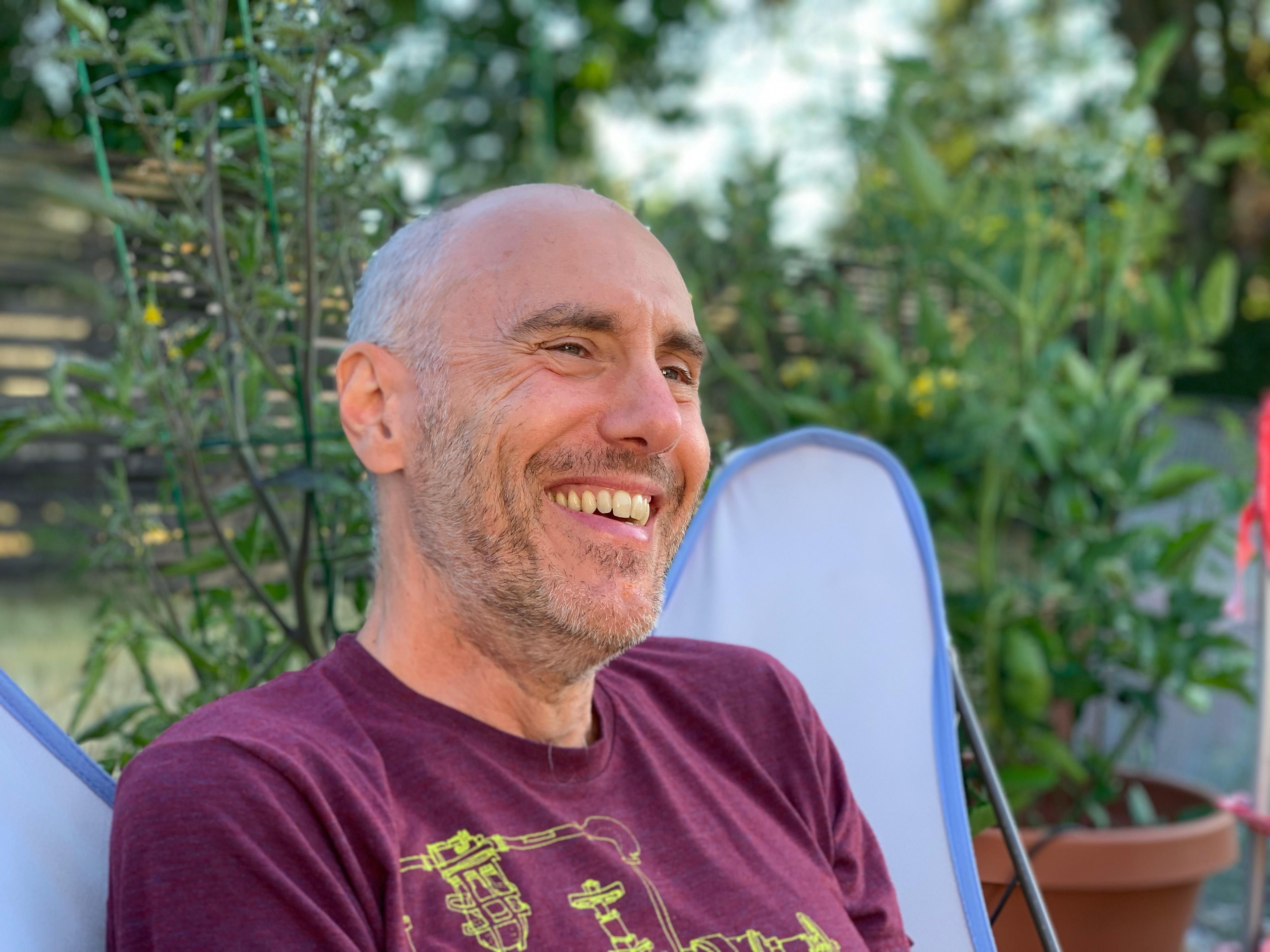Jayda Skidmore: Your collection, Age of Forgiveness, is a beautiful exploration of trauma, grief, growth, and self. As I was reading, I noticed that religious stories often acted as a framework for many of your pieces, bringing everything together cohesively. I'd love to start this discussion by asking what initial thought or experience led to your first efforts at creating this collection?
Caleb Curtiss: Most of my formative experiences around poetry have happened in learning environments. The first time I thought I might try to write a poem was probably when I was a second grader, during reading recovery. I remember my teacher telling me that plenty of kids grow up to write books of all sorts, and that people write them for fun. Then I read We Swap Socks and she sat with me and helped me find confidence in my subvocalizations as I tried to sound out the words, which started spinning around in my head.
That's about the extent of my early poetry life. I'm sure I wrote poems when they were assigned by my teachers, but I never thought about poetry seriously, much less writing a book, until six or seven years after I graduated high school. By that time, I was a community college student, pretty fresh off a career of working as a gas station cashier, and later, an insurance salesperson. There I found a professor who talked about poetry in a way that made it more interesting to me than just about anything else in my life at the time. After a semester of Brooks, Glück, Olds, Yeats, Stevens and a surprising amount of Frost and Williams, I found myself with a quiver full of new schemes, vocabularies, and ideas, and I wanted to try them out—which I did. In 2015, I published a chapbook, but once that was done and published, I found I had more to write about, which you could say is the exigence for Age of Forgiveness.
JS: What an amazing journey! I’m glad you wrote Age of Forgiveness and shared it with us. I’d love to know which one of the pieces within your collection is your favorite and why? What was your process for writing and revising it to get it to where it's now your favorite of the group?
CC: It's hard for me to identify an all-purpose favorite, but I'll say that my favorite poem to read is "Host of Hosts," in part because it's more lighthearted, but also because of how it has evolved since I wrote its first few drafts. It was initially much longer, but after I trimmed it down, I sent it out and had it conditionally accepted by an editor who really helped me understand the images I was working with. Later, when it made its way into the book, I had another chance to rethink its presentation, and with the help of Tennison Black (my editor at Sundress) found a nice rhythm for it.
JS: Can you tell us more about the process of writing, editing, and publishing this book? What was it like for you?
CC: It was difficult. Difficult to draft, difficult to edit, difficult to find a publisher. To that last point, I feel very lucky to have found Sundress, where everyone who worked on the book understood the project implicitly and took pains to guide me through an editing process that didn't only account for the poems, but also for the visual erasures that emerge throughout the collection. One thing the process taught me is that you can't publish a book on accident. You either need a really great reason or feel compelled to do it for reasons outside your own understanding. Personally, I fall into that latter category.
JS: Do you have any advice for aspiring poets regarding craft, creating a collection, and/or the publication process?
CC: When I was starting out, I wish I had been able to better conceptualize writing as a physical act, something I do with my body to corporealize my thoughts and experiences in the form of a poem, a paragraph, etc. This is true of the poems we read and those we write, and it is something to think about when you follow my second bit of advice, which is to read texts that challenge your cultural perspective. While there's plenty more to it, I am comfortable that those are the two coins I rubbed together to make Age of Forgiveness. What I'm less comfortable with is conferring any advice on is the publication process, save for this nugget: get your work out there however you see fit, just don't pay someone else to publish it for you.
JS: Wonderful advice. Do you have any hopes for this collection and the ways in which it may impact readers, the arts, or communities?
CC: In the limited capacity it can do anything, I hope this book prompts readers to consider and discuss the role language and formal experimentation play in defining our interstitial memory systems. Language is the means through which we apprehend the world, not to mention the lives we lead within that world, but when the world becomes incomprehensible to me, I feel an obligation to reconsider the schemes and tropes I use to live my life. Or maybe another way to answer this question is to answer a different one: if the book has a theme, I'd want it to have something to do with the hope inherent to the plastic nature or our existence.
JS: How do each of your poems develop? I'm sure it's different every time, but I know one of my favorite things to hear from authors is their process.
CC: You're right to say that it's different every time. I like to think of each poem I wrote for this collection as an experiment, even and perhaps especially those that use received form or noticeable meter.
JS: What is one piece of advice or feedback you have received about your writing (or writing in general) that has influenced you the most?
CC: Though it's almost always well-intentioned, I have found that most writing advice people dispense feels more like dressed up self-talk than anything. That might be unfair, but it's been my experience, save for one piece of sage advice given to me by a friend shortly after he signed a good deal for a multibook project. I'm paraphrasing here, but the gist was this: keep writing, don't die, and eventually good things (or good enough things) will start to happen for you. As a 42-year-old debut author, I have found this to be true.
JS: That’s very sound advice. I’m sure many people will appreciate hearing that! One final question: if you could tell anything to the younger version of you who just started writing, what would it be?
CC: One must be careful when toying around with past versions of themselves, but if I were to communicate with the Caleb of 15 or 20 year ago, I would tell him this. I'd say: Caleb, you need to start taking the bus to work so you can sell your 1994 Toyota Camry and use the profits to pay for some good ol' psychotherapy. I think that would have solved a lot of problems for me. Of course, it's always easy to give our past selves advice, isn't it? Applying that same perspective to our contemporary lives, while infinitely more useful, isn't quite as easy.









